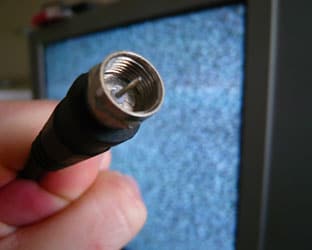Glenn Beck isn’t the only one with a watchdog chasing his advertisers away. The Parents Television Council doesn’t care for CBS’s ‘Two and a Half Men,” and says it has taken 31 sponsors away from the program.
PTC says the show “…barrages viewers with sexual scenes and jokes, and frequently airs foul language. There are countless jokes involving oral sex, male genitalia, and luring women into bed – and all of these situations often include dialogue with a child actor.”
It also says it has contacted 94 companies that have advertised on the program, and convinced 31 to cease and desist.
“Astoundingly, 32% of the 2009 sponsors of ‘Two and a Half Men’ have stopped advertising on the show. We applaud these companies for exercising responsibility for their sponsorships. Several of the companies that pulled their ads let us know that they shared PTC’s concerns and that the content of the show does not match up with their corporate image,” said PTC President Tim Winter.
The companies PTC claims to have convinced to abandon the program include T-Mobile, Honda, Saturn, Abbott Laboratories (Humira), Bayer HealthCare LLC (One a Day Women’s), Bristol Myers-Squibb Company, L’Oreal USA (Maybelline), Pfizer (Lipitor), Schering-Plough HealthCare Products Inc., Tate & Lyle (Splenda), Tylenol, CSC Brands LP, Darden Restaurants (Red Lobster), Frito-Lay North America Inc., General Mills, Kraft Foods, OSI Restaurant Partners LLC, Papa John’s International Inc., Sunsweet Growers Inc., Best Buy, Lowe’s, Macy’s, Sears, Staples Inc., Wal-Mart Stores Inc., Aflac, AXA Equitable Life Insurance Company, Capital One, Chase Bank, Liberty Mutual and Royal Caribbean International.
RBR-TVBR observation: We don’t know why more organizations don’t pursue this policy when they don’t like something they see in the media. Organizations constantly whine and whimper before the FCC, even though in most cases there is not one single thing that the Commission can do about a given program.
But if you have enough followers who agree that a program falls into the irredeemably reprehensible category, and who will back up an attack on the program’s means of support – it’s advertisers – then you are going to make the program’s distributors think twice about toning it down or taking it off the schedule.
Of course, it’s not an easy thing to pull off – and that is a testament to the fact that almost everything put on by broadcasters is perfectly acceptable, even if it is not for everybody. For broadcasters, it has to be that way – it’s a matter of survival.




